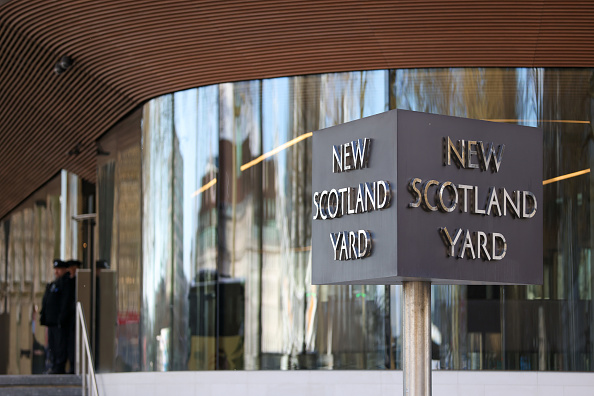The Notebook: Andy Silvester on the dearth of leadership at the BBC and Met Police

Where the City’s movers and shakers get a few things off their chest. Today, it’s our editor Andy Silvester with the pen
Strong leadership is needed to fix the Met and BBC’s vast failings
Some time towards the end of the last millennium, I remember watching my football team – Wimbledon – being torn apart by Spurs in a largely meaningless end of season Premier League fixture.
To this day I remember my dad reflecting that he’d never quite seen a team lose shape in the way we did before; he’d heard commentators and pundits saying it for years, but never really knew what it meant until it was there, in full glorious technicolour, right in front of him.
There are some things in life that are difficult to define – until they’re right there. One such is institutional rot. It’s hard to describe, challenging to explain, but abundantly obvious when it appears.
There are some things in life that are difficult to define – until they’re right there. One such is institutional rot.
Two organisations have shown exactly that institutional rot since Hamas terrorists invaded Israel and murdered civilians across the south of the country.
The BBC has failed, at almost every turn, to acknowledge both the barbarity of Hamas’s attack or the existential threat which the group carries not just to Israel as an entity but to the Jewish people as a whole. And the Metropolitan Police, in its light-touch policing of hate crime over the weekend and tin-eared Twitter justifications of the same, has shown itself to be incapable of protecting the Jewish community.
It is of course worth noting that feeling under-served by the police is not a notion new to other minority communities.
What both of these organisations have in common is a deep complacency, born from their guaranteed funding and their monopoly status.
Real leadership of both is required to turn them around, real leadership that has not yet been seen from either of the ‘new brooms’ at the helm, Tim Davie and Mark Rowley. With each failing they make it more likely, not less, that their independence will be questioned. Perhaps some heat on that front is no bad thing.
Choose London, choose life
One of London’s greatest competitive advantages is not its timezone or the English language but the fact it’s one of the best places to live in the world.
The just-finished London Cocktail Week was a helpful reminder of the variety and quality of the capital’s nightlife, something many at the Moet-Chandon party at Shoreditch’s Seed Library celebrated into the long hours on Sunday evening.
The City is regenerating – so book your tables early
It is a sign of the City’s Monday-Thursday resurgence that breakfast with senior execs are increasingly being held in corporate offices rather than out and about; frankly, getting a table is getting altogether more difficult than it was even a year or so ago. So it’s good news that the Wolseley is opening a new outpost in the City, in the beautiful House of Fraser building at the top of London Bridge. We must all do our bit for the hospitality industry.
Speaking of hospitality, it was good to see Martin Williams last week at the re-opening of Gaucho’s restaurant in the City after a multi-million pound facelift. It takes an awful lot to be a hospitality entrepreneur and there are plenty of reasons to tighten the belt at the moment. Martin and others like him who are taking the plunge, and creating dozens of jobs across the capital, deserve praise.
Lords of the desert
It is difficult to cover a conflict such as the one in the Middle East as a business paper; it feels almost callous to ask a reporter to look at what it might mean for the IPO market or oil prices. Whatever we do, it can’t be written without context. There are many excellent works on the Middle East, but I’ve just finished James Barr’s Lords of the Desert. Much food for thought, indeed.
